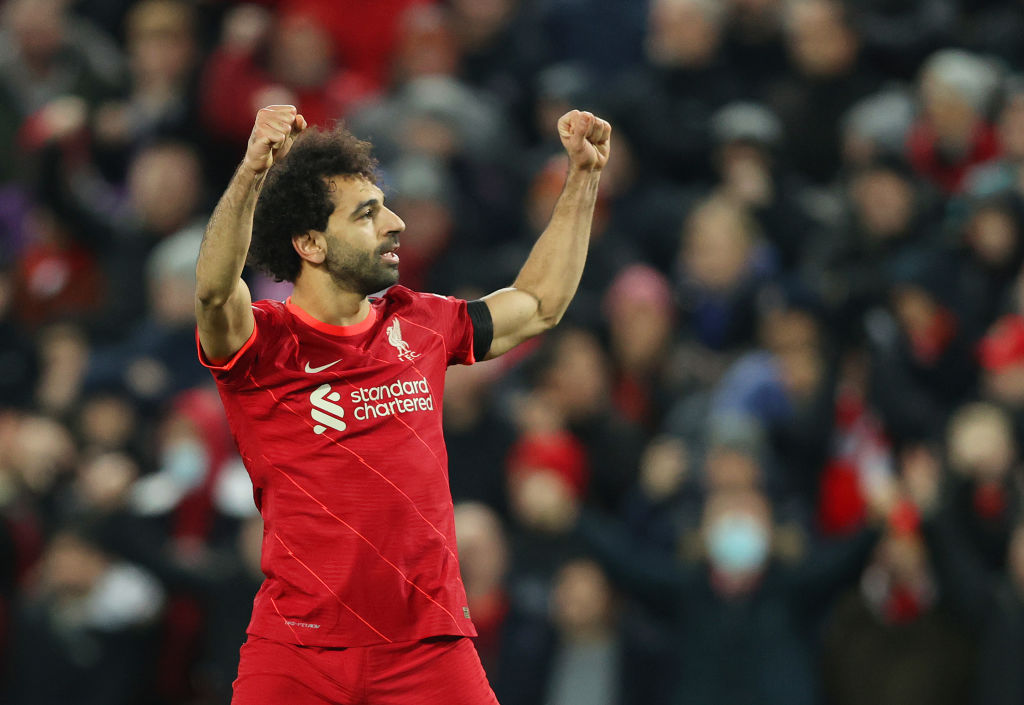Liverpool FC NFT sale: Reds raise £1.1m but 95 per cent of digital artwork left unsold

Liverpool have closed their controversial NFT sale after selling just over five per cent of the available digital artworks of players such as Mohamed Salah.
In the biggest project of its kind from a Premier League football club, Liverpool partnered with Sotheby’s to sell up to 171,072 NFTs for $75 (£57) each – $12.8m (£9.8m) in total – starting on Thursday last week.
The window for purchases was extended to Monday afternoon but only 9,721 – or 5.7 per cent – were sold, Sotheby’s confirmed.
NFTs, or non-fungible tokens, are digital assets and have exploded in popularity, spreading from the art world to sports and entertainment in the last two years.
They remain controversial and unregulated in the UK, however, and football clubs in particular have been criticised for exposing their supporters to financial risk through NFTs and other cryptocurrency-related products.
Liverpool still generated $1.5m (£1.1m) from their NFT sale, however, thanks to an auction element which saw some artworks, of Salah and manager Jurgen Klopp, fetch more than $80,000 (£61,000) each.
But the club’s pledge to donate some of the proceeds to its foundation means that its take from the NFT sale is estimated to be $1.03m or £785,000 – less than Salah’s monthly wage. Of that, £281,000 went to the club’s charity, Sotheby’s said.
“Where Liverpool shot themselves in the foot was by releasing that many,” said Tim Mangnall, chief executive of Capital Block, NFT consultants to the sport and entertainment industries.
“No club in the current state of play was ever going to sell 171,000 NFTs in that short period without going hell for leather and doing every single thing possible
“Selling 10,000 NFTs is positive but it will be seen as negative because of the sheer number they tried to sell.”
Buyers of the $75 NFTs did not have a choice of which Liverpool player artwork they would be allocated once the sale closed.
The auction saw bidders compete for one-off NFTs of 23 Reds players and manager Klopp. It generated $745,290 (£569,000) but half of the proceeds are due to go to the LFC Foundation.
Sports business expert Professor Simon Chadwick called Liverpool’s NFT sale “rather underwhelming”.
“Whilst some will suggest that such a first issue only ever attracts early adopters, one imagines that club officials will be somewhat perturbed by the outcomes and, indeed, the entire process,” he said. “It has been a tricky issue for the club to manage, as it has sought to reconcile the demands of sometimes disparate stakeholders.”
Prof Chadwick, director of Eurasian Sports at Emlyon Business School, added: “One senses that a combination of resistance to what the club is doing, disinterest in NFTs, the pricing strategy Liverpool has adopted, and a lack of familiarity about what NFTs are and why someone should buy them, have all contributed to the situation Liverpool now faces.”
Liverpool deserve credit for choosing a more environmentally friendly form of NFT but didn’t make the sale easy enough to understand for regular fans, says Mangnall.
“Liverpool should overall be happy,” he added. “It’s very easy for everyone to bash them but they sold nearly 10,000 and made their fans aware of it and ultimately it’s a good step for the sector to help create mass adoption. It is easy to bash them which might be a little unfair.”
